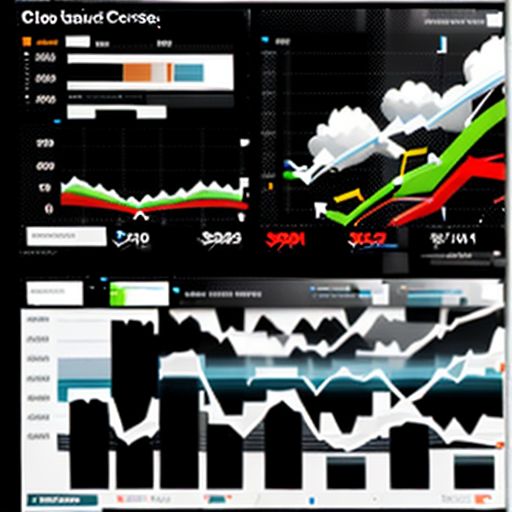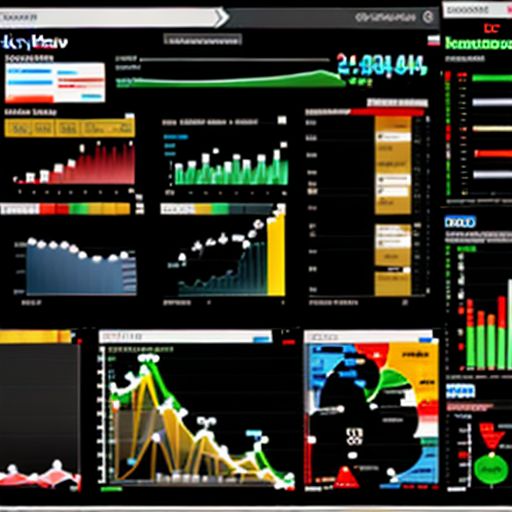Imagine this: you’ve made the leap to the cloud, attracted by its promise of scalability and flexibility. But then, the bill arrives. Sticker shock sets in as you realize that those on-demand resources come with a price – and sometimes, that price can be higher than expected. This is where Cloud Cost Management Solutions come to the rescue.
What are Cloud Cost Management Solutions?
In a nutshell, cloud cost management solutions are tools and strategies designed to help you gain visibility into your cloud spending, optimize your resource utilization, and ultimately, control your cloud costs.
Think of it like this: you wouldn’t run your household budget without tracking your income and expenses, would you? Cloud cost management solutions provide that same level of financial control for your cloud environment.
Why is Cloud Cost Management Important?
In today’s cloud-driven world, effective cloud cost management is no longer a “nice-to-have” – it’s a necessity. Here’s why:
- Avoid Cost Overruns: Cloud computing can be incredibly powerful, but with that power comes the potential for runaway costs. Cloud cost management solutions help you set budgets, track spending, and identify areas where you can reduce waste.
- Optimize Resource Utilization: Are you using the right cloud resources for your workloads? Cloud cost management solutions can help you right-size your instances, shut down idle resources, and take advantage of cost-saving options like reserved instances.
- Improve Forecasting and Budgeting: Accurately forecasting your cloud costs can be challenging. Cloud cost management solutions provide you with the data and tools you need to make informed decisions about your cloud spending.
management.daohocthuat.com/wp-content/uploads/2024/07/cloud-cost-management-dashboard-669090.jpg" alt="Cloud Cost Management Dashboard" width="512" height="512">Cloud Cost Management Dashboard
Key Features of Cloud Cost Management Solutions
Not all cloud cost management solutions are created equal. Here are some key features to look for:
1. Cost Visibility and Monitoring
The foundation of effective cloud cost management is visibility. Look for solutions that provide:
- Detailed Cost Breakdown: Understand your cloud spending by service, region, account, and even individual resources.
- Real-time Cost Tracking: Monitor your cloud costs as they occur to identify potential issues early on.
- Customizable Dashboards: Create dashboards that visualize your cloud spending in a way that makes sense for your business.
2. Cost Optimization Recommendations
- Rightsizing Recommendations: Get suggestions for resizing your cloud resources to match actual usage patterns.
- Reserved Instance and Savings Plans Analysis: Identify opportunities to save money by committing to resources upfront.
- Automated Cost Optimization: Implement automated rules to optimize your cloud resources based on predefined policies.
3. Budgeting and Forecasting
- Budget Setting and Alerts: Set budgets for your cloud spending and receive alerts when you’re approaching your limits.
- Cost Forecasting Tools: Get accurate forecasts of your future cloud costs based on historical data and usage patterns.
- Scenario Analysis: Model different cloud usage scenarios to understand their impact on your costs.
Top Cloud Cost Management Questions Answered
How do I reduce my AWS or Azure cloud costs?
Reducing cloud costs in AWS or Azure often involves rightsizing instances, leveraging reserved instances or savings plans, implementing cost-aware resource tagging, and utilizing cost optimization tools provided by these cloud providers.
What are the best practices for cloud cost optimization?
Best practices include establishing clear cost allocation, monitoring and analyzing spending patterns, implementing automation for cost-saving actions, and continuously reviewing and adjusting your cloud usage based on evolving needs.
What is FinOps, and how does it relate to cloud cost management?
FinOps is a cultural practice and operational framework for cloud financial management. It fosters collaboration between finance, engineering, and business teams to optimize cloud costs while maintaining agility and innovation.
Conclusion
Managing your cloud costs effectively is crucial for maximizing your cloud investment. By implementing robust cloud cost management solutions and adopting best practices, you can gain control over your cloud spending, optimize your resource utilization, and ultimately, drive greater business value from the cloud.





